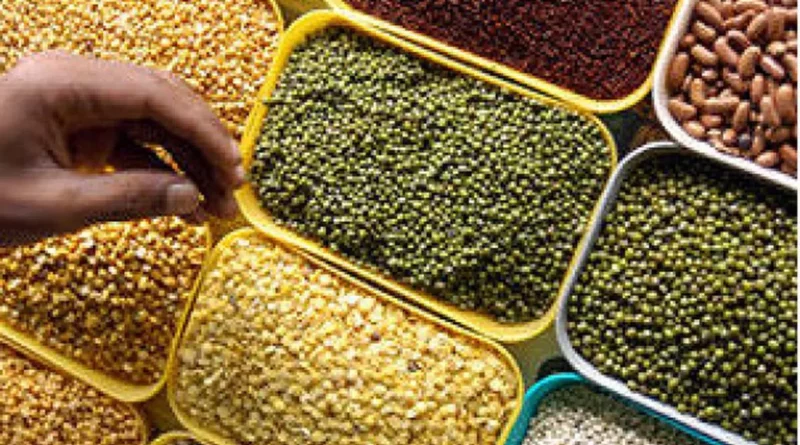Delayed monsoon may increase prices of pulses, vegetables; Pune traders rue shortage of supplies
By Parthsarthi Biswas
After two years of good rains, the possibility of a weak monsoon has once again raised fears of inflation in food prices. Pune, like other parts of the country, has witnessed a steady year-on-year rise in prices of pulses and vegetables which, as per sources, can get dearer if the monsoon turns out weak.
Prices of pulses, especially that of toor, are exceptionally high across the country with the pan-India retail price of toor dal hovering between Rs 125.90/kg and Rs 130/kg which a year back was between Rs 100/kg and Rs 105/kg. Similarly, moong dal is retailing between Rs 110/kg and Rs 115/kg as against between Rs 100/kg and Rs 105/kg last year.
The trend is same for urad in the country with the pulse being sold between Rs 111/kg and Rs 115/kg this year as compared to between Rs 101.84/kg and Rs 105/kg last year.
Masoor dal is the only exception among pulses which has reported a slight correction in the year-on-year price and is being sold between Rs 92/kg and Rs 94/kg against between Rs 95/kg and Rs 96/kg last year.
In fact, as per the Price Monitoring Cell, Union Ministry of Consumer Affairs, almost all pulses across the country are now trading above Rs 100/kg in retail.
In Pune too, the situation is no different. Nitin Nahar, a wholesale trader operating out of Pune’s wholesale market, said there is already an inflation in the prices of pulses in the city.
In the markets around Pune, toor dal is being sold at approximately between Rs 140/kg and Rs 150/kg, moong and urad dal are retailing between Rs 100/kg and Rs 110/kg while masoor is the cheapest between Rs 70/kg and Rs 75/kg.
Nahar said, “At present, the market has a 30 per cent shortage in terms of supply of pulses which has given rise to inflation. Almost all pulses are being sold at prices above the government declared minimum support price (MSP) which is also affecting the retail prices.”
Nahar did not rule out further price rise in the days to come. “The delay in the onset of monsoon has already pushed back sowing and thus fresh arrivals in the harvest season will be delayed,” he said.
It might be recalled that on Monday, the central government had reintroduced stock limits on wheat, with similar action on toor and urad already being taken in the past. Traders say this is a sign of nervousness on the part of the government about a weak supply in the future.
In the case of vegetables, an inflationary trend is visible across the markets. Barring tomato and onion, which are relatively cheaper at Rs 25 and Rs 20 a kilo, respectively, most of the common vegetables are being sold above Rs 50.
Prices of cucumbers (Rs 52/kg), beans (Rs 112/kg), brinjal (Rs 60/kg) are all on the higher side. The rise in price of vegetables is a recent phenomenon given the fact that the summer rains have ensured better than usual harvests.
Vilas Bhujbal, a commission agent operating out of Pune’s wholesale market, said the combined effect of summer and the increased purchase due to Palkhi in Pune has seen the prices rising by 10-15 per cent. “However, with the monsoon failing to arrive on time, we expect prices to remain on the higher sides till August,” he said.
The article has been republished from The Indian Express

